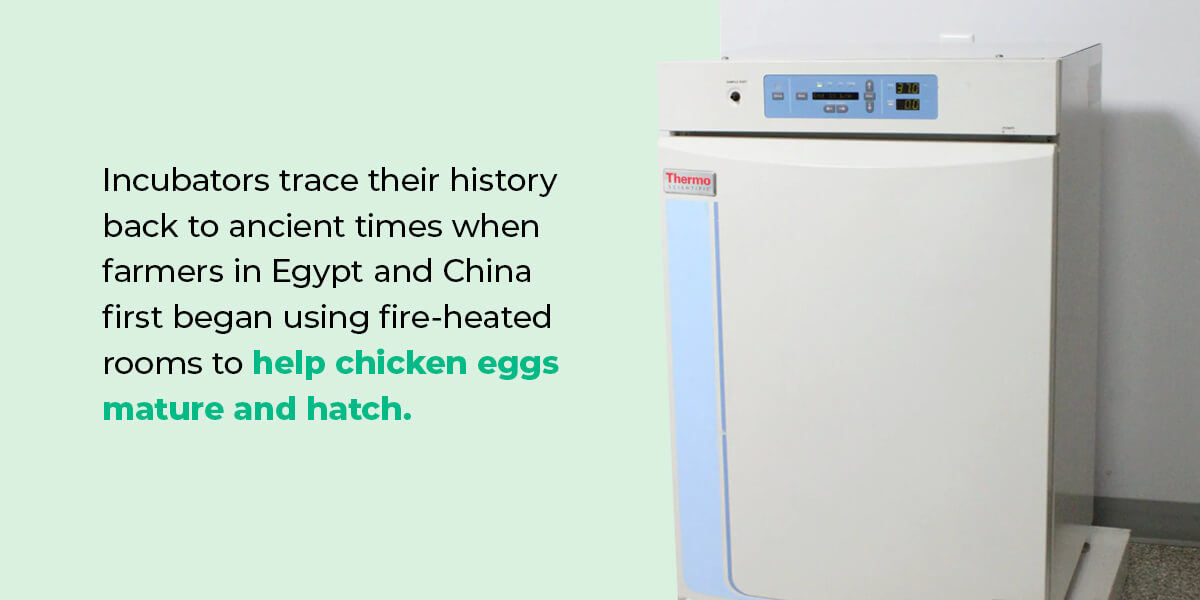The modern carbon dioxide (CO2) incubator is an invaluable lab research tool for many applications, including biochemistry, microbiology and epidemiology. These instruments maintain a highly controlled environment for cell growth that can improve diagnostics and confidence in results. By controlling CO2 exposure, this equipment helps ensure accurate pH levels.

Tracing the CO2 Incubator's Roots
Incubators trace their history back to ancient times when farmers in Egypt and China first began using fire-heated rooms to help chicken eggs mature and hatch. Fast forward to the mid-16th century, Italian scientist Jean Baptiste Porta modernized the design. The next significant update occurred about a century later with the addition of a thermometer by inventor Rene-Antoine Ferchault de Reaumur.
In the 1800s, the interest in incubation for researching cell cultures began to grow. By the early 20th century, scientists had realized the instrument's value in pathology, leading to the first commercially available CO2 incubators in the 1960s.
How Have CO2 Incubators Changed Over Time?
Modern CO2 incubators have advanced significantly from their earliest iterations. In the 1800s, their designs were simple and consisted of a jar, a culture, a candle and a dry, warm oven. Then 20th-century scientists discovered that shaking mechanisms improved culture mixing and aeration, leading to manufacturers adding this feature to commercially available CO2 incubators.
By 1984, incubator producers had begun advancing the instrument by introducing better heat distribution technology. This development led to replacing heating elements with Peltier blocks to create tabletop models in the mid-1990s.
Evolution since then includes advancements such as:
- Temperature stabilization technology that safeguards against heat loss as ambient temperatures rise.
- Infrared or thermal conductivity to sense and control CO2 levels.
- Radiant-walled or water-jacketed configurations for temperature control.
- Atomizers and steam generators versus pans to maintain humidity.
- Lightweight designs boasting advanced diagnostics and other user-friendly technology.
- High-efficiency options with multiple stacking chambers that reduce lab space use.
- Models with customizable interior configurations and automatic self-cleaning cycles.
- High-precision options with faster H2O2 sterilization systems.
- Incubators with alarms and additional automation features.
Order Used CO2 Incubators From New Life Scientific
New Life Scientific is your trusted source for cost-effective used CO2 incubators. Although our inventory frequently changes, our commitment to quality never does. Each piece of equipment undergoes strict performance testing and comes with a 120-day warranty for more peace of mind.
Order online today or contact us for more information and experience our friendly service firsthand!



















